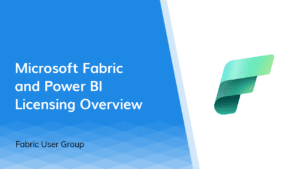Brick and mortar businesses like salons and restaurants are permanently transitioning to bricks and clicks business models. Your brand might be in the same tricky situation, searching for ways to keep customers engaged online while encouraging customers to visit your physical location.
Brands that previously didn’t have to think about a direct-to-consumer (DTC) strategy are flipping their business models on their heads to survive in a COVID-era economy. Adding to the frenzy, millennials and Gen Zs are changing previous generational buying behaviors by spending less on experiences, stocking up on items, and cutting back on spending.
Consumer behavior has shifted from visiting physical retail locations to online shopping. Customers are changing what, when, and how they’re buying. Your brand must adapt to these changes and be flexible enough to address your customers’ changing needs. In other words, it’s time to seriously consider a direct-to-consumer strategy.
Why It’s Time for a DTC Strategy
“The future” is happening right now. Consumer buying behavior has shifted almost exclusively to online retail markets. Technology that was once a nice-to-have is now necessary if you want to compete and come out on top.
Since the pandemic-related lockdown orders, consumers have been shopping online more and visiting physical retail locations less. In 2021, ecommerce is expected to account for about 6.6% of all CPG (consumer packaged goods) sales and the DTC (direct to consumer) movement accounts for 40% of the sales growth in this sector.
Brands selling direct to consumer (DTC) pre-pandemic were in a much better position going into this pandemic-era digitized economic landscape. The rest are doing everything they can to compete, strategically pivoting to accommodate new online customers.
If you’re not selling direct to consumers, you could be unintentionally leaving money on the table. A retailer with a strong direct to consumer marketing strategy can:
- Learn new information constantly about their customers.
- Get familiar with customer behaviors and preferences.
- Engage with consumers through multiple channels using personalization.
Benefits of a Direct to Consumer (DTC) Strategy
Selling direct to consumers empowers brands to compete with established brands and drive recurring revenue. A direct-to-consumer marketing strategy is an incredibly powerful way to get closer to consumers, gain insights, and learn how to grow brands more effectively in a world shaped by technology.
During the pandemic, consumer packaged goods (CPG) sales in the United States increased by $8.5 billion—or 15 times—the normal sales. According to Shopify, brands with the strongest positions to sell DTC are the CPG companies that have never sold directly to consumers and the financially strong legacy wholesalers.
The best-performing brands are those offering in-demand products, being easily discoverable online, and distributing their products in a contactless manner. Case in point…the normalization of curbside pickup and contactless delivery via apps likes Instacart and DoorDash.
Merchandising is another way brick and mortar brands are transforming the way they do business to serve customers and continue bringing in revenue.
Look at what hair salons are doing. They had to find innovative ways to earn revenue since clients aren’t coming in to get their hair done like they were before. So, salons are implementing a subscription-based business model where they sell their customers’ favorite products to them on a monthly basis.
Selling direct allows you to take advantage of the data you collect from customers and develop a stronger relationship with them. Your brand needs to start leveraging all of this new data you’re gaining from the bricks-to-clicks shift to create unique shopping experiences and build a stronger brand.
Leveraging Data for Your Direct to Consumer Strategy
It’s highly likely that the consumer buying trends we’re seeing today will continue well after the pandemic is over. Brick and mortar businesses should focus on both driving people back to their online shops as well as welcoming customers back into their retail stores.
Your brand needs to fully leverage data as part of your direct-to-consumer strategy. You also need data management tools to help you:
- Understand your customers better.
- See insights into why, when, and how customers are engaging with your brand.
- Learn ways to continue to foster each customer relationship.
Loyal and return customers are more profitable customers. These loyal customers tend to have a stronger presence in terms of influence and word-of-mouth advertising.
Your brand is already starting to understand that it’s possible to have a strong online shop and still maintain your in-store brand. It’s actually easier to maintain your brand this way because you can control the entire customer experience.
So much of that comes from actually being able to understand, glean insights from, and use data about current customers. With a data-driven DTC strategy, you really get a sense of which customer groups your brand is resonating with and which other audiences might be interested in your products or services.
DTC and CDP Are The Perfect Data Setup
Leveraging data for your DTC strategy is way easier with a customer data platform (CDP). A CDP is a valuable asset if your brand is navigating the bricks-to-clicks effect.
The main benefit of having customers engage with your brand online is…you know who they are. That means you can both analyze and prompt customers throughout their shopping and checkout experience.
Say, for instance, you own a hair salon and you’re using a direct-to-consumer strategy to collect customer data. Previously, you might not have known much about your customers and you might not have had an email list. But with an email list and a direct-to-consumer approach, you now have more powerful information about your customers.
You might know what they order, when they order it, how frequently each customer orders shampoo (or what health and wellness products they’re interested in), the shops they visit, and the neighborhood in which they live.
All of this data can be used to personalize the experience for your customers. But, how do you access everything from one place? This is where a CDP saves the day. A customer data platform creates unified customer profiles with all of this information that’s being gathered across various systems; including those that collect data from online and in-store purchases.
Collecting data and using it to enhance the customer experience is one thing. But you also have to think about how you’ll protect sensitive data so customers continue to trust your brand and do business with you.
Customers have to be able to trust that you’re going to respect their privacy and keep their information safe and secure. Another advantage of using a CDP that incorporates data privacy is the ability to use data while also protecting it and staying in compliance with privacy laws.
____________
The past year has been extremely tough for brands and I have nothing but respect for the way people have come together to not only stay afloat but to innovate—continue generating revenue while learning to better serve their customers.
This rapid digitization of the consumer experience is a huge opportunity for your brand to learn more about your customers. Your marketing can be hyper-focused and hyper-targeted. And you can keep engagement high to drive customers back to the store when your physical location is open.
As you adjust to your bricks-to-clicks transition, a customer data platform like Skypoint Cloud is here to make life easier for your brand. Reach out to the Skypoint team and we’ll show you how to bring your direct-to-consumer strategy to life using our robust CDP.











